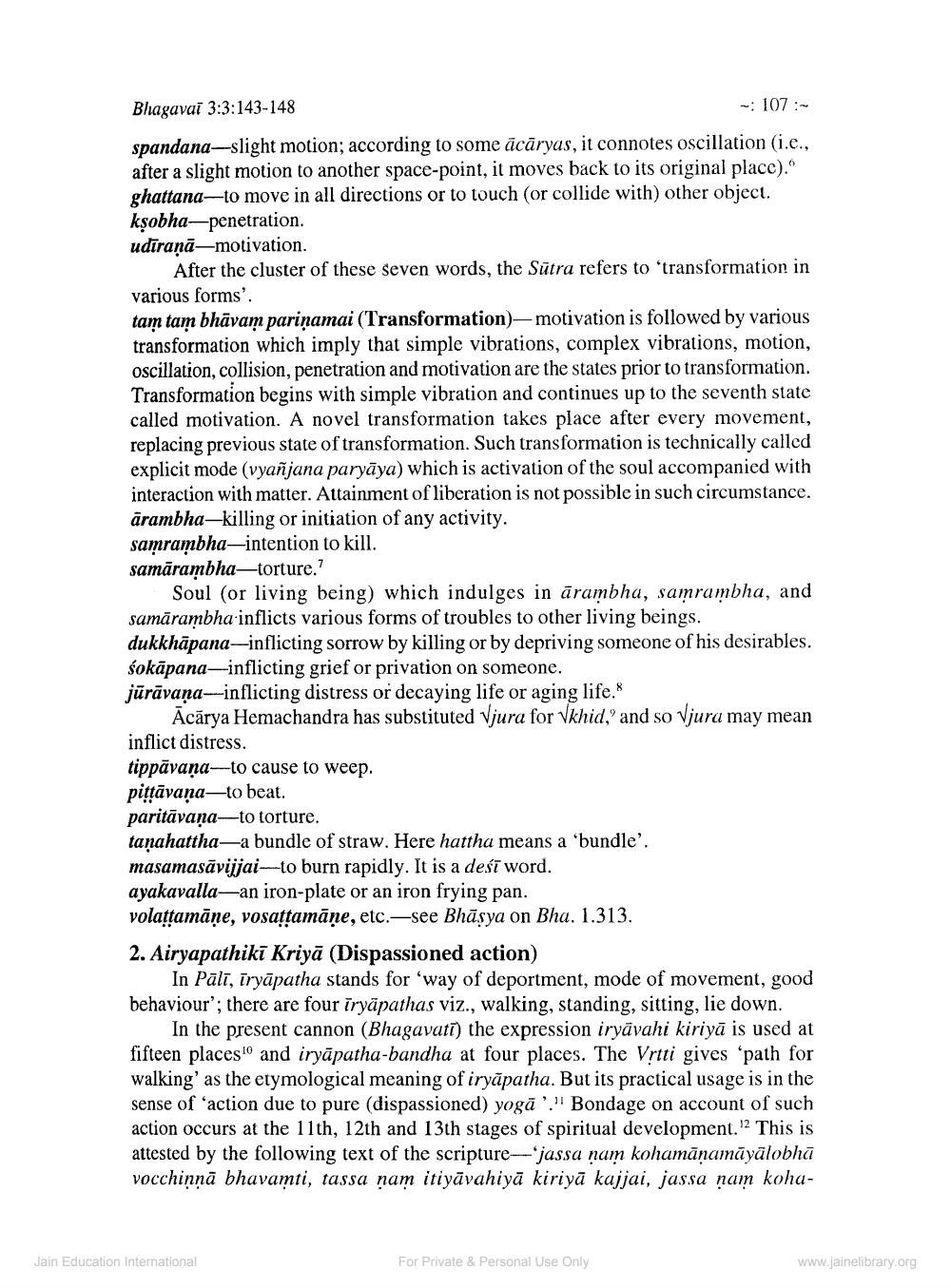________________
Bhagavai 3:3:143-148
-: 107 :spandana-slight motion; according to some ācāryas, it connotes oscillation (i.e., after a slight motion to another space-point, it moves back to its original place)." ghattana—to move in all directions or to touch (or collide with other object. kşobha-penetration. udīraņā—motivation.
After the cluster of these seven words, the Sūtra refers to 'transformation in various forms'. tam tam bhāvam pariņamai (Transformation)-motivation is followed by various transformation which imply that simple vibrations, complex vibrations, motion, oscillation, collision, penetration and motivation are the states prior to transformation. Transformation begins with simple vibration and continues up to the seventh state called motivation. A novel transformation takes place after every movement, replacing previous state of transformation. Such transformation is technically called explicit mode (vyañjana paryāya) which is activation of the soul accompanied with interaction with matter. Attainment of liberation is not possible in such circumstance. ārambha-killing or initiation of any activity. samrambha-intention to kill. samārambha—torture.?
Soul (or living being) which indulges in ārambha, samrambha, and samārambha inflicts various forms of troubles to other living beings. dukkhāpana-inflicting sorrow by killing or by depriving someone of his desirables. sokāpana-inflicting grief or privation on someone. jūrāvaņa-inflicting distress or decaying life or aging life.$
Ācārya Hemachandra has substituted Vjura for Vkhid,' and so Vjura may mean inflict distress. tippāvana--to cause to weep. pittāvaņa—to beat. paritāvana—to torture. tanahattha—a bundle of straw. Here hattha means a "bundle'. masamasāvijjaim to burn rapidly. It is a desī word. ayakavalla—an iron-plate or an iron frying pan. volattamāņe, vosattamāņe, etc.—see Bhāsya on Bha. 1.313. 2. Airyapathikī Kriyā (Dispassioned action)
In Pālī, īryāpatha stands for 'way of deportment, mode of movement, good behaviour'; there are four īryāpathas viz., walking, standing, sitting, lie down.
In the present cannon (Bhagavati) the expression iryāvahi kiriyā is used at fifteen places and iryāpatha-bandha at four places. The Vrtti gives 'path for walking' as the etymological meaning of iryāpatha. But its practical usage is in the sense of action due to pure (dispassioned) yogā'' Bondage on account of such action occurs at the 11th, 12th and 13th stages of spiritual development. This is attested by the following text of the scripture-jassa nam kohamānamāyālobhā vocchinnā bhavamti, tassa nam itiyāvahiyā kiriyā kajjai, jassa nam kohu
Jain Education International
For Private & Personal Use Only
www.jainelibrary.org




